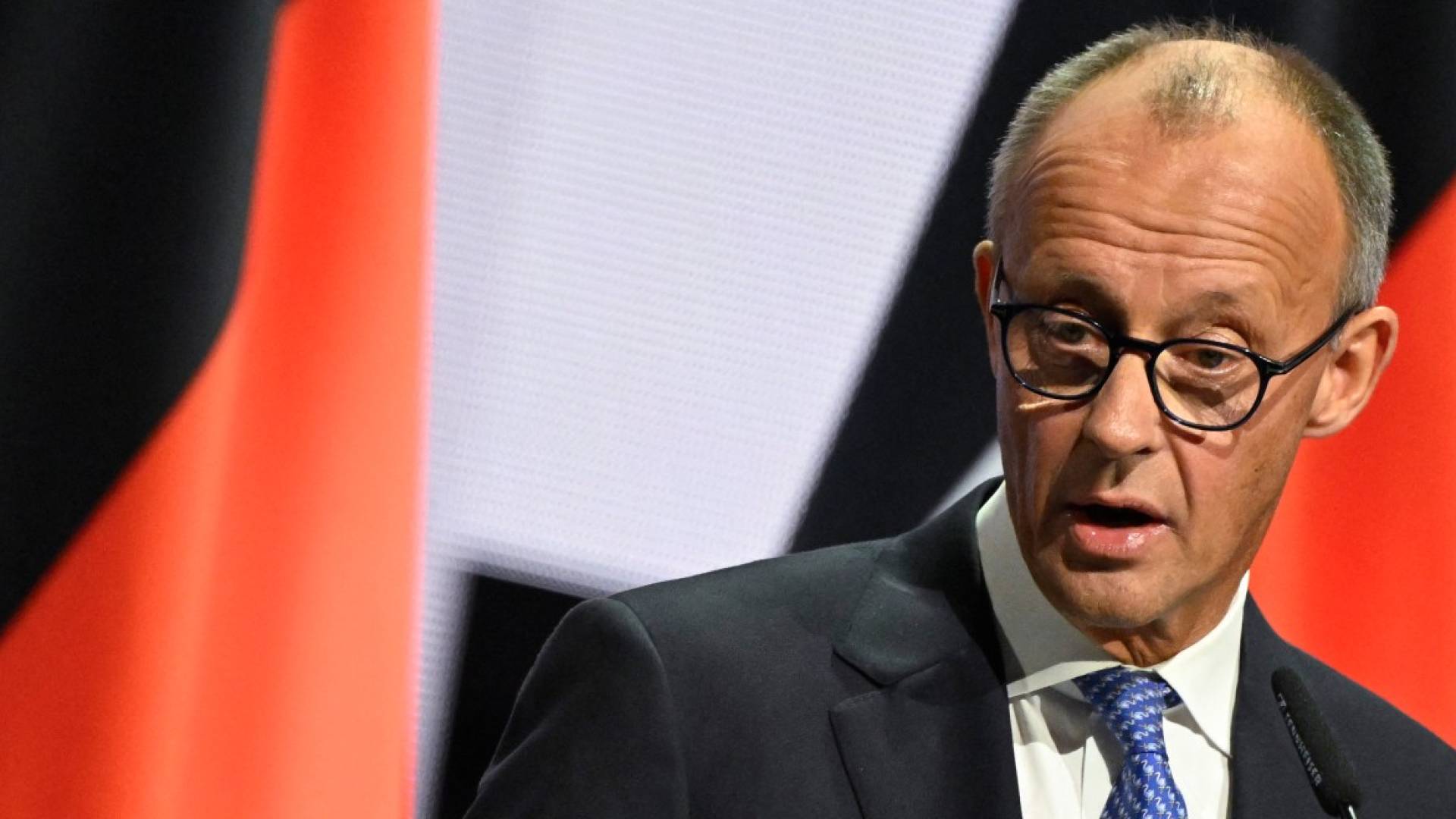Germany's Chancellor Friedrich Merz (Credit: AFP)
German chancellor Merz threatens Eurovision boycott if 'Israel' is excluded
- German Chancellor Friedrich Merz says he would support Germany boycotting Eurovision 2026 if Israel is banned.
- Merz called the debate over Israel’s participation “a scandal.”
- The European Broadcasting Union (EBU) will hold an online vote in November on whether to expel Israel’s broadcaster KAN from Eurovision 2026.
German Chancellor Friedrich Merz has said he would back Germany’s withdrawal from next year’s Eurovision Song Contest if 'Israel' is barred from taking part, calling the ongoing debate over 'Israel’s' participation “a scandal.”
Speaking to public broadcaster ARD on Sunday, Merz said, “I would support this. I think it’s a scandal that this is even being discussed. Israel has a place there.”
Germany is one of Eurovision’s “Big Five” members, alongside France, Italy, Spain, and the UK, whose broadcasters provide the largest financial contributions to the competition. France has already confirmed its participation in next year’s contest, while Spain became the first of the five to announce it would pull out if 'Israel' is banned.
Several other European broadcasters, including those from the Netherlands, Ireland, Iceland, and Slovenia, have reportedly threatened to boycott Eurovision unless 'Israel' is excluded. Denmark’s DR, meanwhile, said it would remain in the contest even if 'Israel' participates, but added that its continued involvement would depend on future conditions.
Under growing pressure, the European Broadcasting Union (EBU) announced last month that it will hold a vote in November to determine whether 'Israel’s' national broadcaster, KAN, will be allowed to remain a member and participate in Eurovision 2026.
For the first time, all EBU member broadcasters will take part in an extraordinary online General Assembly, with the vote on 'Israel’s' participation being the sole agenda item.
In a letter to participating networks, EBU president Delphine Ernotte Cunci said the union had encountered “an unprecedented diversity of views” on the issue, adding that the decision required “a broader democratic basis.”
The EBU later confirmed that “a vote on participation in the Eurovision Song Contest 2026 will take place at an extraordinary meeting of the EBU’s General Assembly to be held online in early November.”
Although Eurovision maintains it is an apolitical event, the EBU banned Russia from the competition following its 2022 invasion of Ukraine. In contrast, 'Israel' has continued to compete despite global criticism of its military campaign in Gaza. Both the 2024 contest in Sweden and this year’s event in Switzerland were marked by large pro-Palestine demonstrations.
Calls for 'Israel’s' exclusion have also come from within the Eurovision community. Over 70 former contestants have signed an open letter demanding a ban on 'Israel' and KAN, while last year’s winner, Austrian artist JJ, has voiced support for the same position.
In response to the planned vote, KAN issued a statement expressing “hope that the Eurovision Song Contest will continue to maintain its cultural and apolitical character,” warning that excluding 'Israel' “could be a step with wide-ranging implications.”
The 70th edition of the Eurovision Song Contest is scheduled to take place in Vienna, Austria, with the semi-finals on May 12 and 14, and the grand finale on May 16, 2026.




